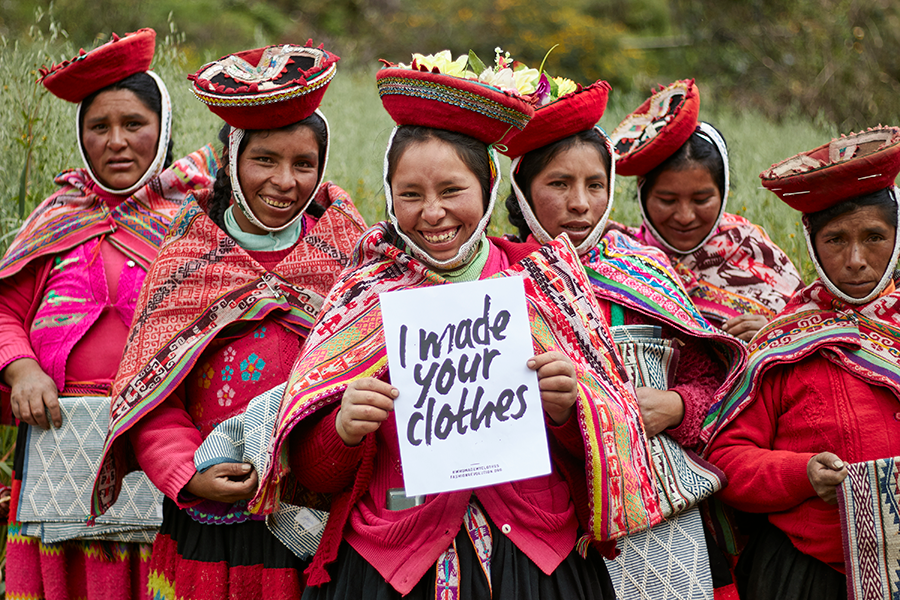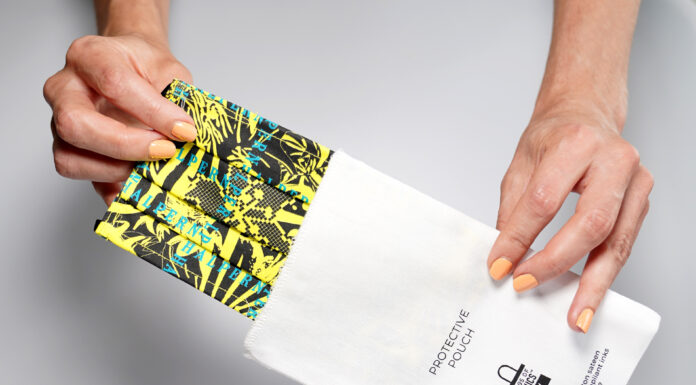“What we can’t achieve alone, we can champion together” – Fashion Revolution

WHO ARE FASHION REVOLUTION?
Founded in 2013, Fashion Revolution is a not-for-profit global movement, active in over 100 countries across the world. Their mission- in acknowledging that no individual brand, system or person is responsible for the challenges the fashion industry faces – is to campaign for ‘a clean, safe, fair, transparent and accountable fashion industry’. Through education, research, collaboration and encouraging consumers to question the origins of their garments, Fashion Revolution connects consumers with the real people behind the creation of their clothes, and the environmental impacts of their fashion choices. In this context, a new relationship between people and fashion is imagined and aspired to; one where transparency in the supply chain is a societal given, and workers throughout the fashion industry are treated fairly. Fashion Revolution mobilises voices to intervene in the entire fashion system, and campaign for this change.
This year, Fashion Revolution altered the wording of their mission in a small yet significant way. They removed the suffix ‘er’ from the words clean, safe and fair. This alteration is significant. It symbolises a refusal to accept that anything below clean, safe and fair constitutes ethical working conditions or care for the environment. These demands are non-negotiable.
WHAT IS FASHION REVOLUTION WEEK?

Held annually during the week surrounding the 24th of April, Fashion Revolution Week 2020 is taking place from the 20th–26th April, marking the anniversary of the 2013 Rana Plaza collapse. Housing a variety of garment factories catering to some of the biggest global fashion brands, this building in Bangladesh was the workplace of around 5000 people. Over 1100 people died when Rana Plaza collapsed, and 2500 were injured. This event was the fourth largest industrial disaster in history. Fashion Revolution Week marks the anniversary of this disaster, the victims of which were mostly young women. The spirit of this week, and of the Fashion Revolution movement, is to honour those people who lost their lives by fighting for the rights of those who are still forced to work in unsafe, unfair conditions across the fashion industry.
WHAT PROBLEMS DOES FASHION REVOLUTION WEEK ADDRESS?
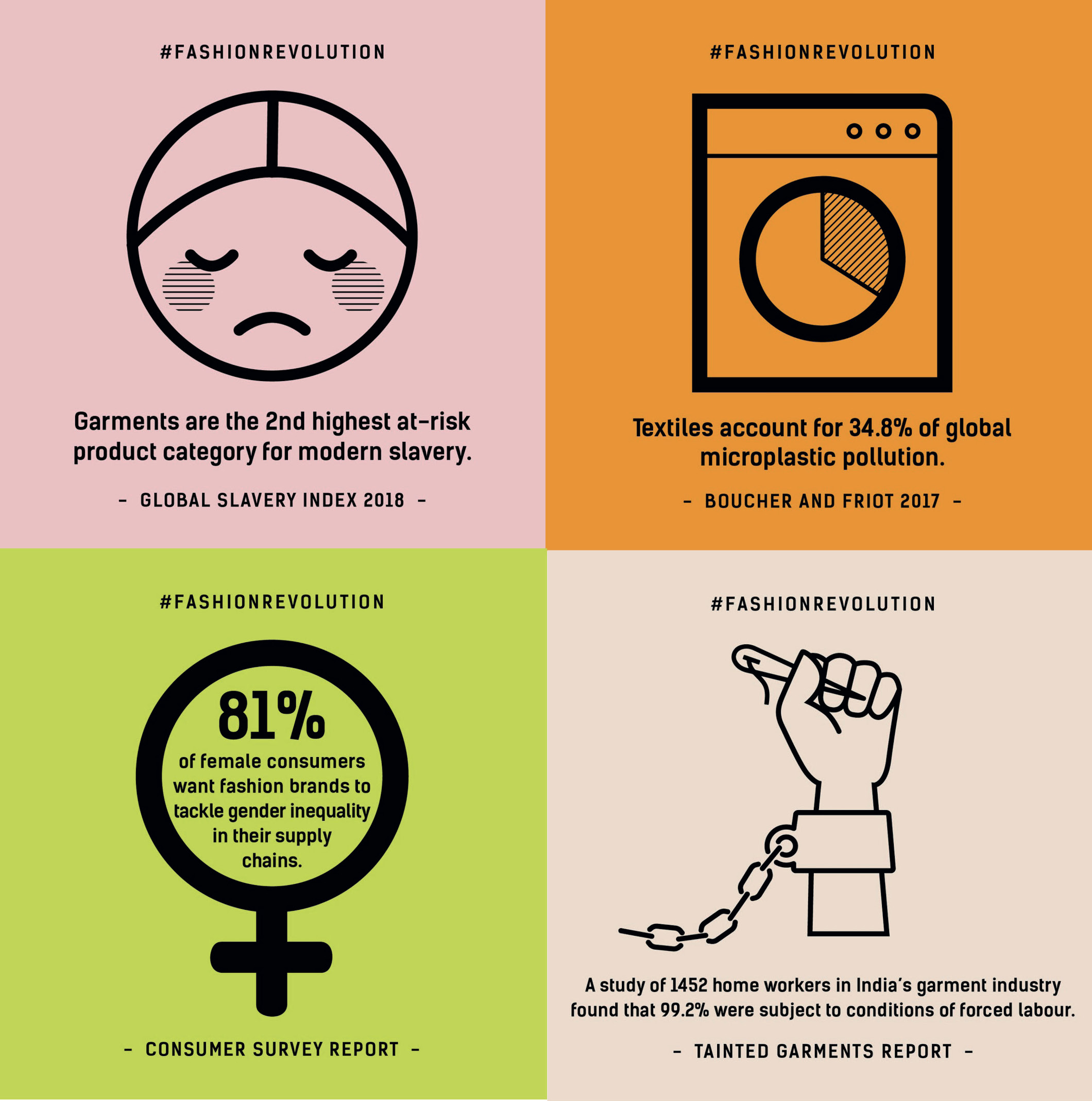
The culture of disposability prevalent in today’s society is a primary focus. Consumption affects the health of the planet and the welfare of vulnerable people. Though consumers play a vital role in local and global economic systems, the rate of fashion consumption is unprecedented, and continues to increase. This culture of consumption needn’t be accepted as the only possible norm. Fashion Revolution calls on brands to re think their linear business models, and re-structure their manufacturing chains. Though changing this complex global system may appear an impossible task, the fact that the current system in which fashion operates was man made is proof that an alternative system is achievable.
Conditions of workers are another vital focus of Fashion Revolution Week. Voicing the struggles of workers across the global fashion industry and fighting for their rights, Fashion Revolution sheds light on alarmingly common practices within the industry such as child labour, trafficking, forced labour, exploitation of the vulnerable and modern slavery. The conditions in which the workers at Rana Plaza were forced to work exemplify the risks that brands are willing the take with the lives of innocent individuals in order to grow profits. Encouraging consumers to ask #whomademyclothes during this week and beyond facilitates engagement between consumers and the people whose lives are behind the creation of their clothes.
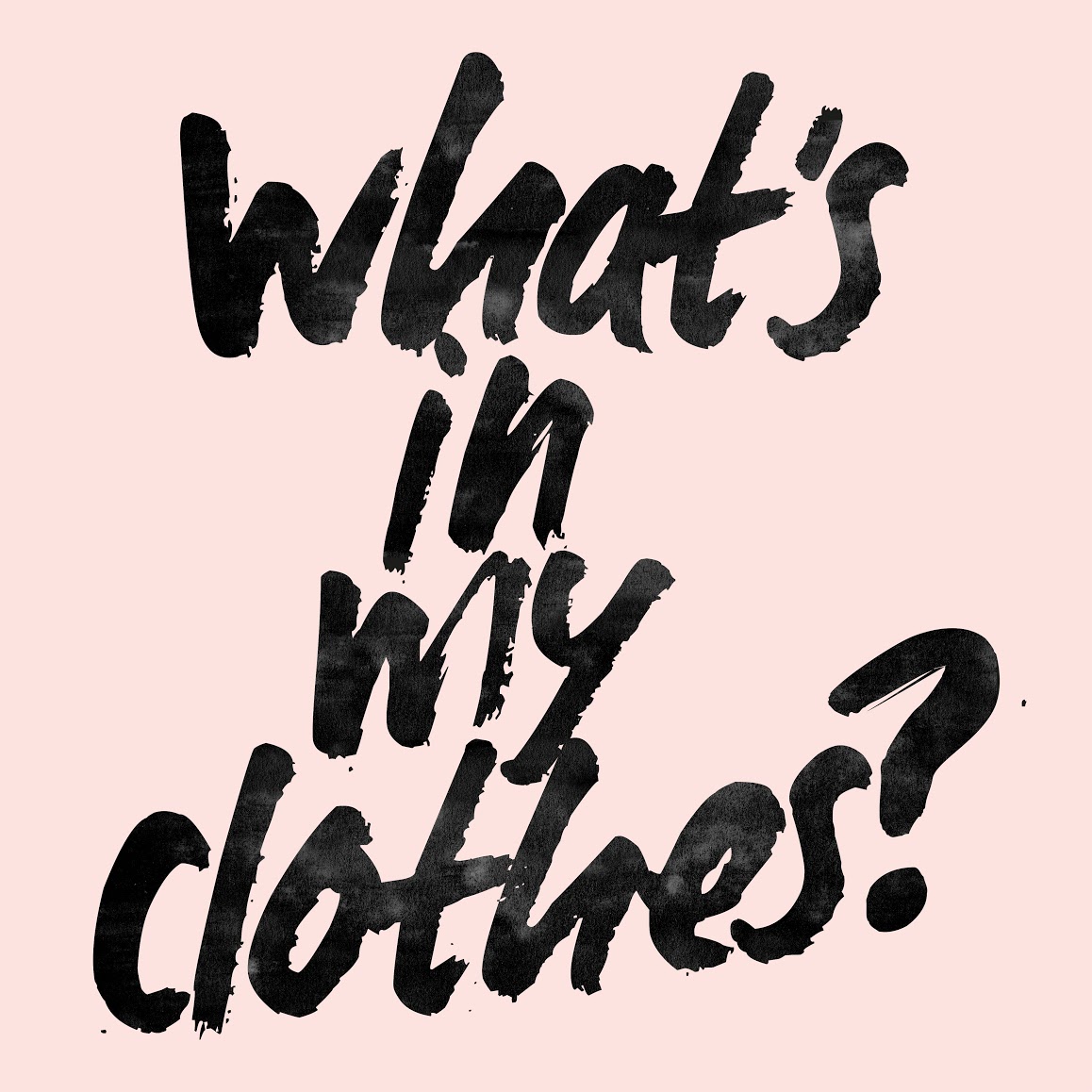
Consumers are also encouraged to ask brands a second question- new to the event this year- #whatsinmyclothes. This question covers chemical use, fibre origins, effluent processes and the ‘hidden’ substances utilised within garment manufacturing. Brands who are asked this question should be ready to provide information on the certifications of their manufacturing procedures, how they harvest their raw materials, their processes for management of effluents and microfiber shedding and deforestation- to name a few.
HOW TO GET INVOLVED!
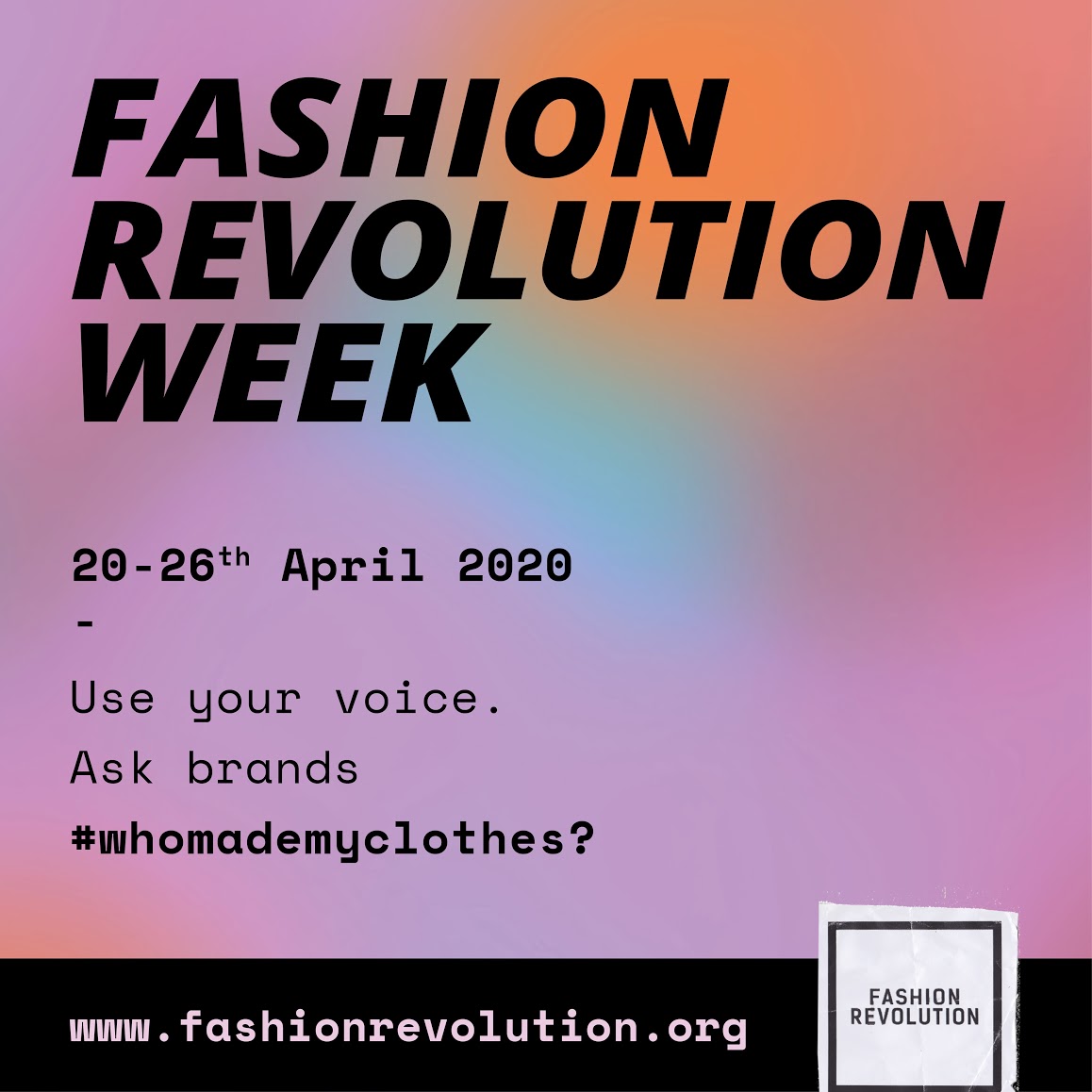
In light of the current pandemic, physical events such as clothes swaps are of course unable to go ahead. But this does not limit the potential consumers have to affect change through digital pathways. Fashion Revolution’s guide to hosting your own digital event can be found here.
Social media is a hugely influential resource that can be utilised during Fashion Revolution week and after. Individuals can use #whomademyclothes and #whatsinmyclothes to comment on brand’s social media posts with their questions, DM them, or post about their queries. Contacting brands directly by email or postcard is made easy with templates for these resources, helping revolutionaries to communicate their questions, regardless of their level of industry understanding.
Asking brands about these issues individually may not achieve a response, but applying pressure across consumer bases will leave brands unable to justify their ignorance of these topics. Fashion Revolution Week acts as a catalyst for change by educating individuals to ask these crucial questions.
It is the duty of all brands to be able to provide the answers to all these supply chain questions and many more. Though some brands publish this information readily, many when asked give generic, non descript answers, ignore the question all together, or greenwash as a response. Developments in global fashion industry transparency can be tracked through FR’s annually published Fashion Transparency Index.
Beyond Fashion Revolution Week, further education through the many resources on the Fashion Revolution Website is another positive step all consumers can take. Understanding the impacts of materials and processes within garments, as well as knowing how to care for them will lead to more responsible purchases as well as the extension of the life span of garments.
Being a disrupter- a protestor- by holding brands accountable as informed purchasers rather than unaware consumers is where potential for change lies within Fashion Revolution Week.
“Together we will – we must- make the change.”
Fashion Revolution
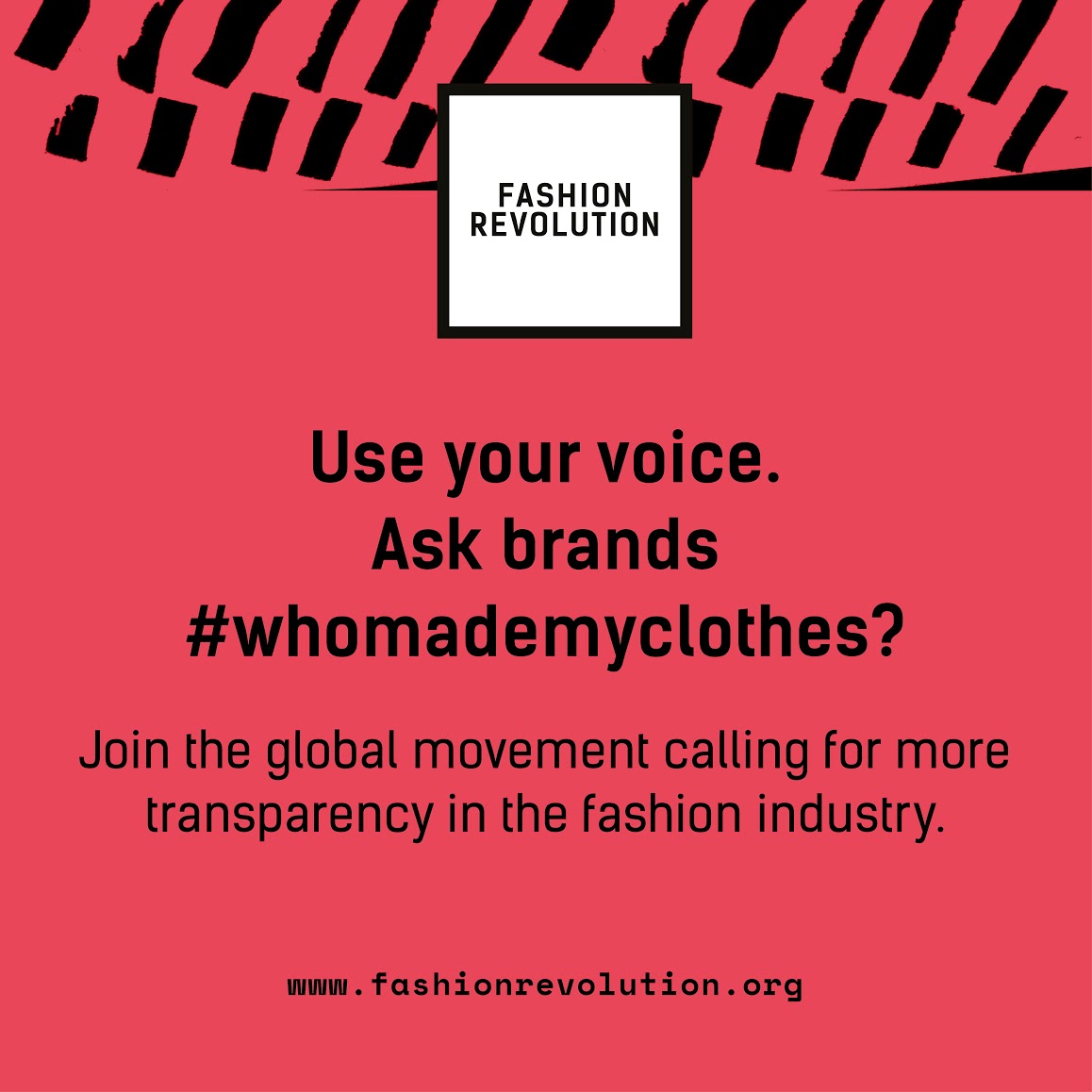
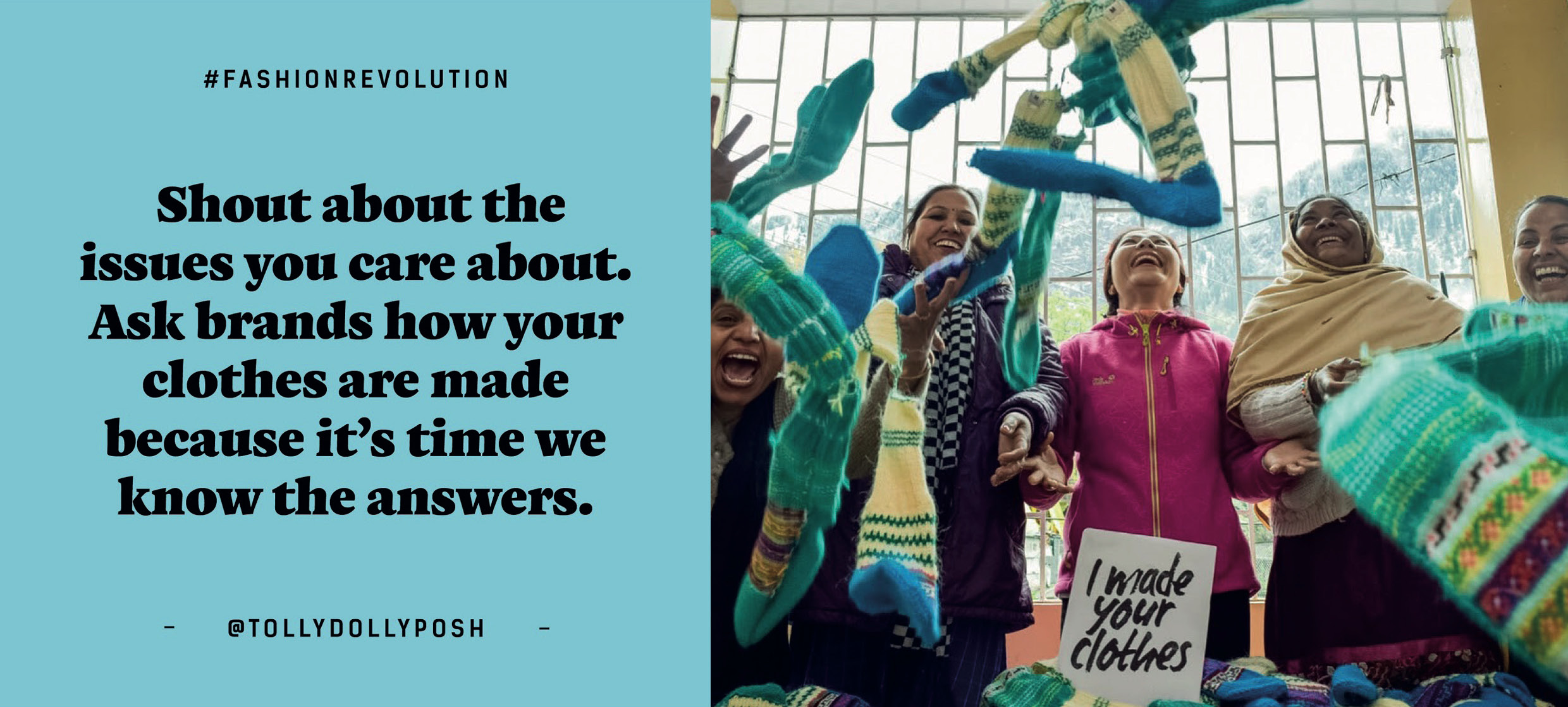

Subscribe To Our Newsletter
Join our mailing list to receive the latest news and updates from our team.


